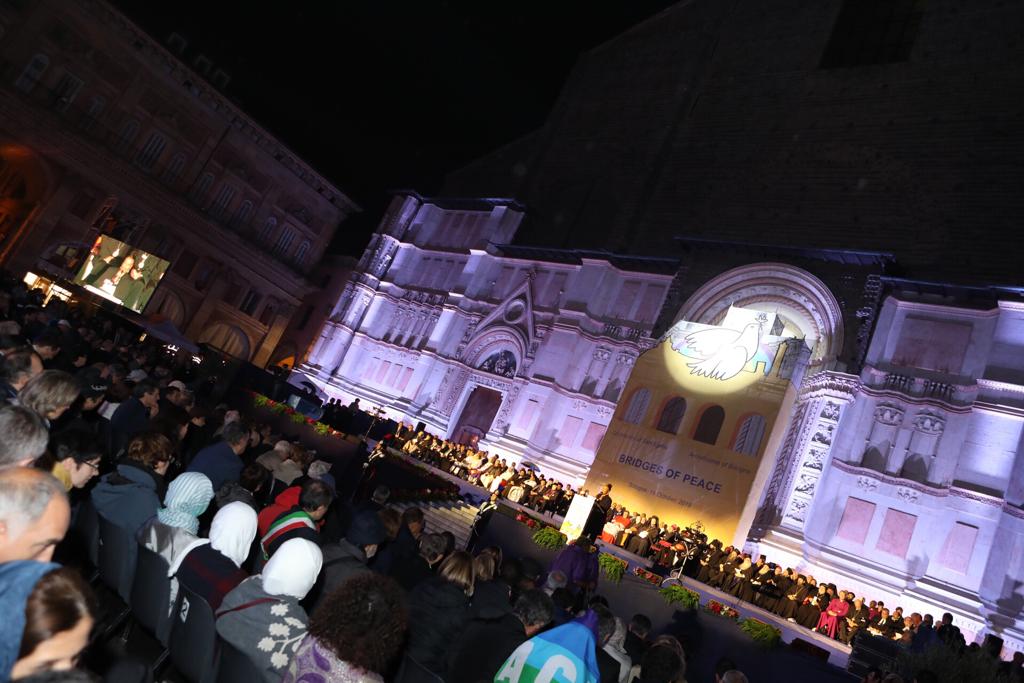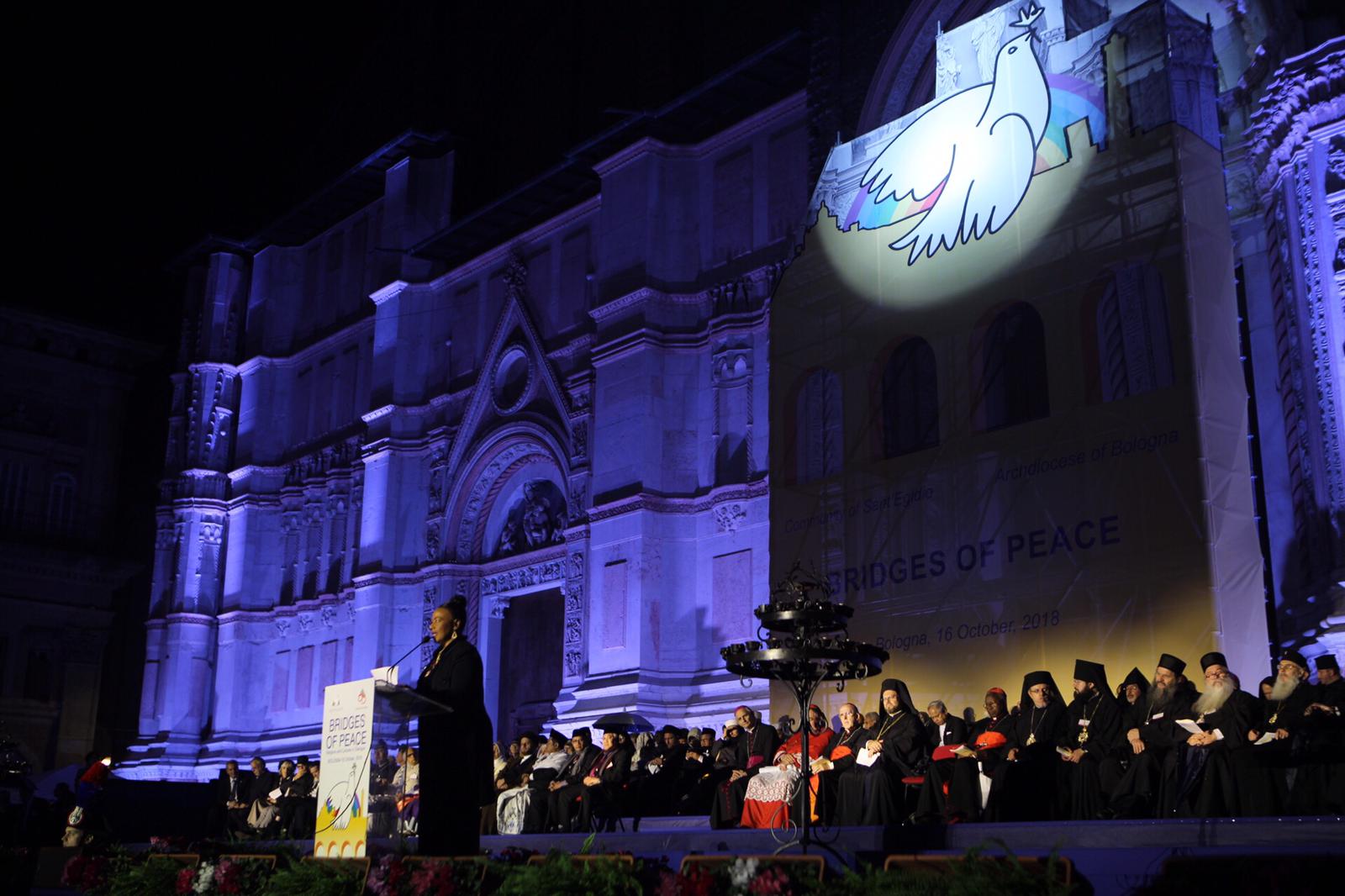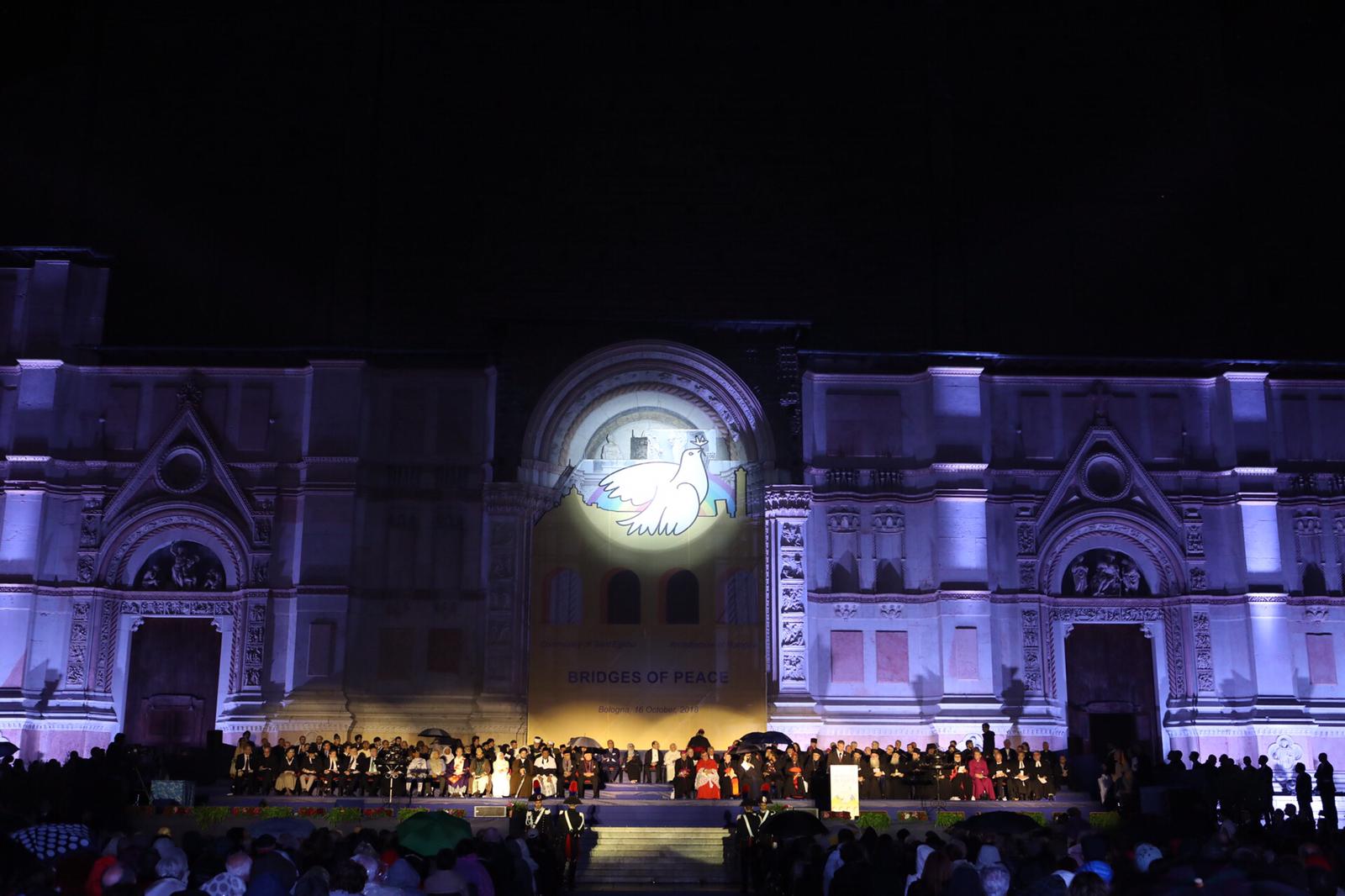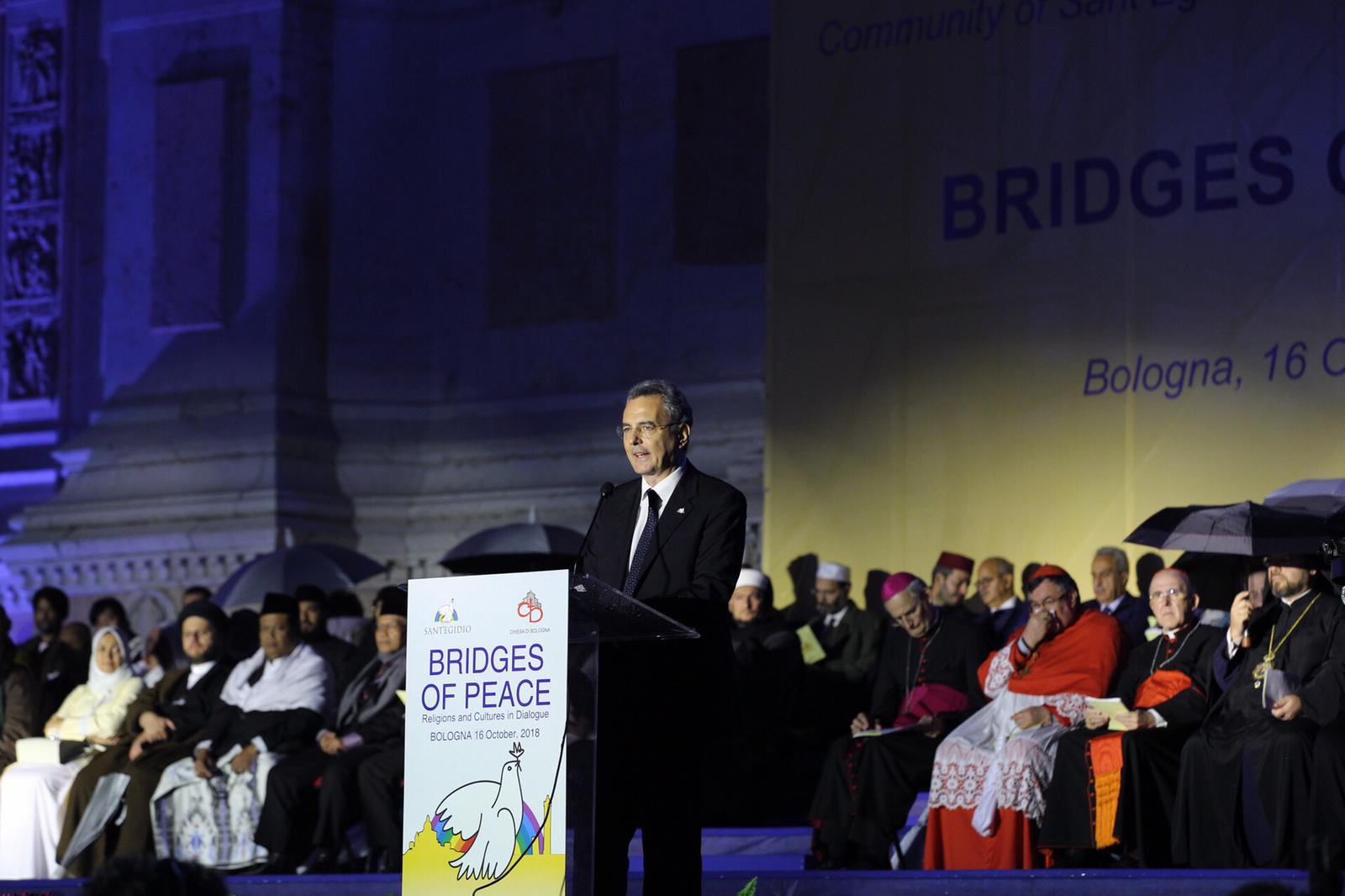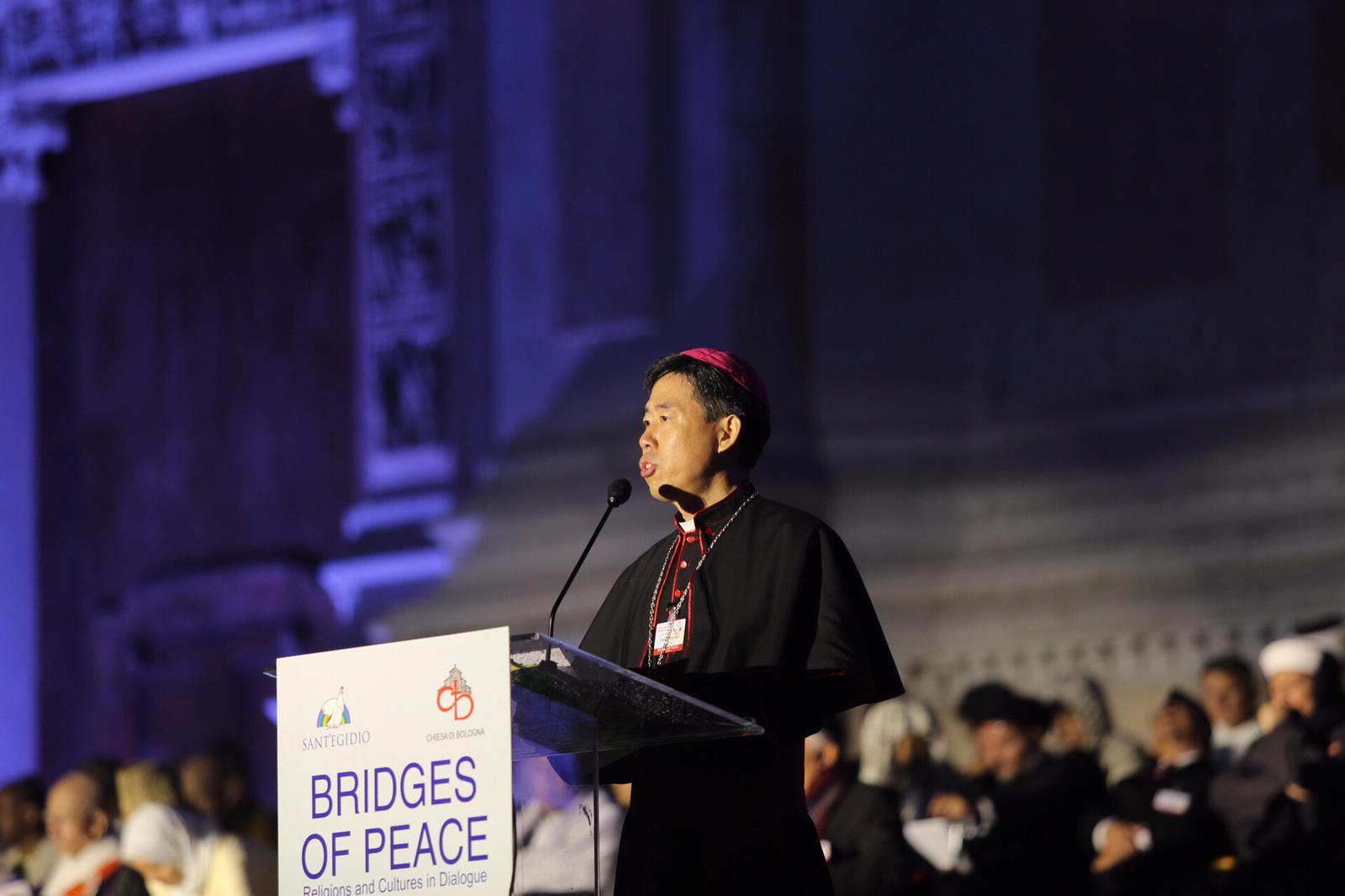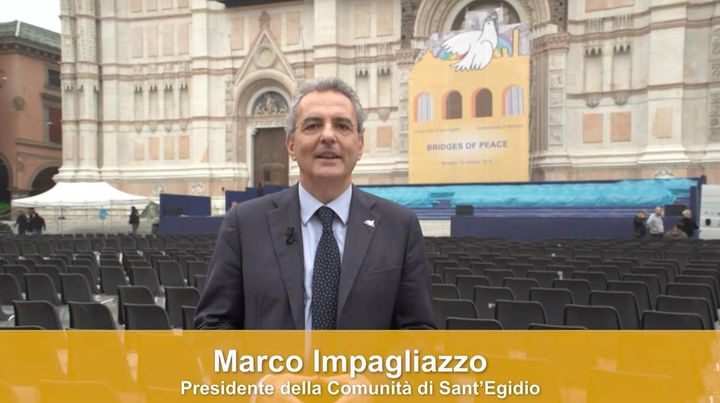Distinguished panelists,
Moderator,
Eminences,
Ladies and gentlemen
1. First of all, allow me to extend my sincere thanks to Saint's Egidio for the invitation to this very strategic and prestigious conference organised in a beutiful and historic city Bologna. It is an honor for me to be here to share my very limited knowledge and experince about this topic. Indeed, I do come here to listen and learn from you, especially distinguished speakers.
2. The theme; Bridge Builders is very timely, actual, and relevance with the world today. Economically, the world a very serious gap between the have and the not have. There are widening prosperity gaps and inequality between countries and groups of people. It is observable how a very small elite people whose assets and possession equal to millions of poor people, they are not only so dominant and influential, but more seriously they have the power of money to direct the world. This gap is one of the sources of insecurity, and to some cases have resulted in social onflicts.
Culturally, there is increasing misunderstanding between people from different cultural backgrounds, ethnicities, and religions. Indeed, people live in a multicultural and globalised planet. Technology of transportation and communication have people live closer, physically. People do realise, encounter, and experience the diversity of religion, culture, and language. But, people do not really understand each other, communicate, and accept each other. We observe the increase of intolerance, extremism, violence, and terrorism in many different part of the world.
Politically, there are ongoing tensions between countries and political factions. In many countries innocent people are victims of proxy wars. These people become refugees in many countries and even homeless in their home respective country.
3. In these situations, we need bridge builders whether individuals and organisations. Bridge is a means that joint two or more separate places. In its broader meaning, building bridges could mean reducing the gap, engaging the divide, interpreting the language, connecting the separate, and the like. We could build bridges through giving, sharing, listening, understanding, accepting, accommodating, and advocating each others in order to reduce or narrow gaps, eliminate misunderstanding and miscommunication, and to create peace and harmony. Bridge builders are actors of peace who dedicate themselves to ease conflicts, build peace, and develop a just world.
4. In nowadays situations, Jews, Christians, and Muslims face serious challenges. Instead of being peace builders, there are perceptions that these three religions are agents of conflicts and insecurities. Conflicts in many countries and world terrorism are associated to extreme groups within these religions. There are groups that deliberately use, misuse, and abuse religions as theological legitimacy to wage violence and terrorism.
These perceptions are totally wrong. No single teaching of both religions allow the use of violence. Most conflicts involving Jews, Christians, and Muslims are mostly caused by non theological and religious factors. They are predominantly triggered by economic and power oriented political factors.
5. Muslims, Christians, and Jews could play as bridge builders if they could cope their internal challenges, disengage with historic and theological constrains, and actualise common teaching of these Abrahamic religions. Undeniably, Jews, Christians, and Muslims have yo cope with existence and development of extreme and fundamentalist intolerance groups. These groups intensely refer to verses within respective Holy Books and historical experiences to exclude existence of others. Referring to the Quran Al-Baqarah, 2:120, the Crusade, European colonialism of Muslim countries, and the establishment of Israel, a Zionist State, Muslims believe that both Christians and Jews are enemies of Islam.
There are five strategic programs in order that Muslims, Christians, and Jews could become bridge builders. The first is theological programs involving reintrepation of The Quran, The Bible, and The Torah in a more comprehensive and contextual interpretations. Another program is to have a theological dialogue to explore similarities and dissimiliarities of teaching. The second program is to intensify meeting and dialogue or trialogue to face common challenges and develop common actions. For example, in Western contexts there are anti Semitic groups or anti religions that view religions as souce of conflicts. The third is to have dialogue in action, partnerships, and cooperations based on common teaching, common good, and oneness of humanity such as poverty alleviation, conservation of nature, promoting democracy, curbing corruption, human rights advocacy, humanitatian services, women empowerment, knowledge literacy, and other development programs including overcoming problems of malnutrition, child abuses, HIV, family planning and so on. The fourth program is developing better education and nurture for youth through many genuine and creative programs based on social media, mass media, internet, etc. Last but not least is strengthening multiculism and pluralims at national and international levels though education and cultural programs as well as policies and regulations.
